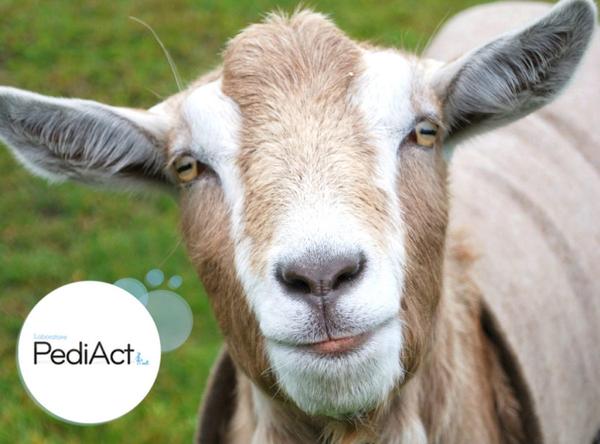To replace cow's milk, goat's milk arrives in the world of infant formulas
If breastfeeding remains the ultimate in terms of nutritional benefits for baby's health and growth (we can't say it enough), sometimes the young mother can't or doesn't want to breastfeed. .
In this case, and until now, the non-breastfeeding woman had no choice but to opt for 1st stage milks (or infant formulas) or 2nd stage milks (or follow-on formulas) based on cow enriched with essential elements for baby's growth. But since August 2013, and following a favorable opinion from the European Food Safety Authority (EFSA), a new source of protein has been authorized in the composition of infant formula: goat's milk proteins. This new directive, transcribed into French law in May 2014, is based on two clinical studies carried out on Capricare, an infant milk made from goat's milk.
But is it really beneficial to the baby for its growth? Can it be a solution for babies who are tired of infant formula made from cow's milk? What are its advantages and disadvantages ?
A complete nutritional contribution, ideal if baby gets tired of cow's milk
If unenriched animal or vegetable milks are not at all suitable for the baby, preparations based on goat's milk or cow's milk are developed to scrupulously meet the nutritional needs of the newborn. Goat's milk, accused of being too rich in mineral salts that could lead to kidney problems, and too poor in certain vitamins and essential fatty acids, has thus been supplemented in order to arrive at a formula that meets the baby's needs.
Milk proteins, vitamins and minerals, essential fatty acids are therefore present in the right proportions.

Indeed, as recalled by Dr. Mar Bellaïche, gastro-pediatrician at the Robert-Debré hospital in Paris, the baby needs at least 10 grams of protein per day. This essential contribution must be guaranteed. In this sense, vegetable milks (soya, almond, chestnut, hazelnut, oats, etc.) and unsuitable animal milks are to be avoided.
But when baby categorically refuses the bottle, it is not always easy to find a solution. For Dr. Bellaïche, it is in this sense that infant formulas made from goat's milk are satisfying and “unique” products. Because, he recalls, on average 15% of children have oral disorders (difficulty feeding by mouth), which must absolutely be overcome so that babies can develop without deficiencies.
As the taste of goat's milk products is fundamentally different from that of cow's milk products, it is possible that babies are more comfortable with them. Dr. Bellaïche adds that this second attempt is to be preferred before excessively prescribing medication so that baby tolerates milk better...
What makes it different from cow's milk preparations?
In addition to the irremediably changing taste, the Capricare goat's milk preparation has other advantages that set it apart from conventional cow's milk products.
As in women, the goat secretes its milk in an apocrine way: the droplets of milk are released in the excretory ducts, carrying with them cellular components. In cows, on the other hand, the process is merocrine: the drops of milk are released without cellular fragments accompanying them. In this sense, goat's milk is closer to mother's milk than cow's milk.
By its low composition in β-lactoglobulin and α1-casein, two whey proteins, goat's milk would also be more digestible than cow's milk, and closer to the composition of breast milk. In addition, its caseins have the particularity of forming a soft and porous curd in the baby's stomach, which allows for more complete digestion.
Finally, Capricare goat's milk formula has a more balanced ratio of dairy fats and added vegetable oils, which leads to an adequate supply of essential fatty acids.
A product that has already proven itself but remains a bit expensive
Sold in pharmacies by PediAct, Capricare is a product made in New Zealand by the Dairy Goat Co-operative. It has been marketed for 23 years in many countries around the world, including Russia, New Zealand and Australia.
To give its favorable opinion, the European Food Safety Authority based itself on two clinical studies carried out on the Capricare product. In both cases, the researchers concluded that this infant formula was as suitable for babies as formulas made from cow's milk. The growth curves of infants fed goat's milk formulas were similar to those observed in those fed conventional cow's milk formulas. No significant difference was observed between the two groups regarding the babies' head circumference, weight and height.
If Capricare represents the solution or even the ideal alternative for babies who shun prepared cow's milk, its price is a little less attractive. Count €15 for a 400g box of Capricaire, or around €1 for a bottle, compared to less than half for classic products made from cow's milk.
Read also :
Infant milk: the questions you really ask yourself
Baby: giving cow's milk would harm future sociability
What about mixed breastfeeding?
Loading-widgetSubscribe to the Top Santé Newsletter to receive the latest news for free








